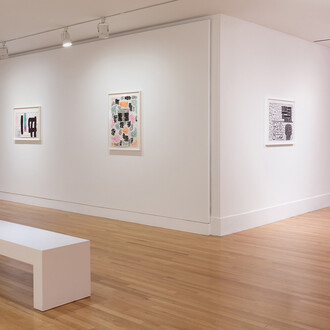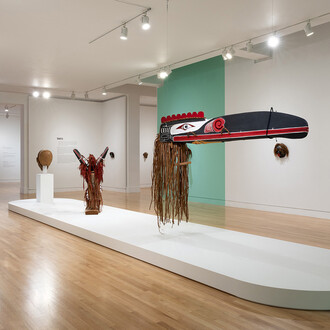Between the Frames explores the evolution of the Frye Art Museum’s collection, presenting sixty-five years of acquisitions in chronological sequence. The exhibition charts the Museum’s transformation from a personal selection of late-nineteenth and early-twentieth-century art, cultivated by First Hill residents Charles and Emma Frye, to a museum of the twenty-first century dedicated to regional and international creative practice in its myriad forms. Situated between founding legacy and future vision, Between the Frames considers the ways institutions shape and are shaped by their collections.
The Frye Art Museum was founded in 1952, over a decade after Charles (1858–1940) and Emma Frye (1860–1934) bequeathed more than two hundred oil paintings that today comprise the Founding Collection. The Museum’s creation can be credited to the unwavering determination of Walser Sly Greathouse, executor of the Frye estate and founding director of the Museum, who retained the Fryes' vision for a free, public art museum for the people of Seattle—with special consideration for the community of First Hill.
Greathouse was the first of six directors who, from 1952, expanded the Museum’s collection, acquiring new works to enliven and contemporize the paintings bequeathed by the Fryes. Subsequent leaders sought to do the same: ensure the continuity of the Museum’s legacy while exploring emerging trends. Between the Frames is a story not only of the Museum’s evolution but a narrative of its leadership—portraits of each director encapsulated within suites of artworks.
A museum’s transition from private collection to public institution is an extraordinary endeavor—a project that does not conclude with a ribbon cutting but rather continues throughout its lifespan. The Frye Art Museum’s holdings also reflect a singular history of place—the evolving identity of Seattle and its artists within global dialogues of cultural production. As an institution committed to free, public engagement with art, the Frye Art Museum’s position within the region’s cultural ecology has always been democratic and dynamic, transforming itself decade-to-decade, director-to-director—reframing the past, informing the present, and speculating on the future.
















